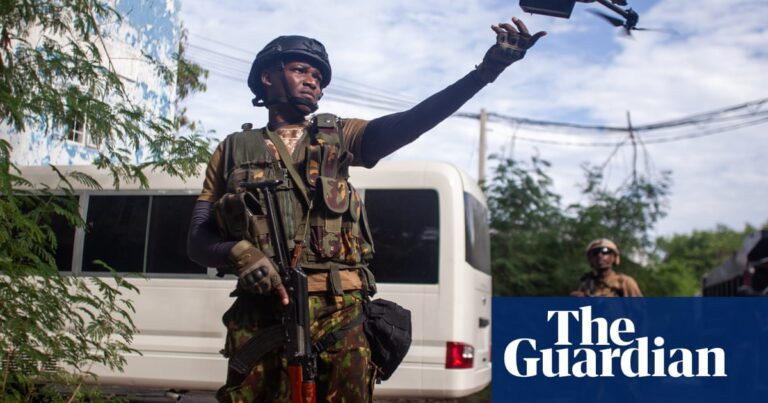‘The ground shook’: drone attacks help Haitian government wrest control of capital from criminal gangs
Haiti’s capital, Port-au-Prince, is witnessing a dramatic shift as drone strikes target criminal gangs, helping the government regain control. Recently, drone warfare has become a key tactic against heavily armed gangs, sparking global attention and raising questions about its impact and legality. Let’s explore how this high-tech approach is shaping Haiti’s fight for security.
The Rise of Drone Warfare in Haiti’s Crisis
How Drones Are Changing the Battle
Since March, armed drones have become a powerful tool for the Haitian government to confront violent gangs in Port-au-Prince. These remote-controlled devices deliver precise strikes on gang hideouts, significantly altering the city’s security landscape. Videos and reports show drone strikes targeting armed members and their vehicles, creating a new front in urban warfare.
The Equipment Behind the Attacks
The drones used are typically inexpensive FPV models, sold online for around $200. They are fitted with homemade or commercially available explosives, making them accessible for local use. Experts compare their tactics to those seen in conflicts like Ukraine-Russia, highlighting how civilian-grade drones are being weaponized for combat.
Impact of Drone Strikes on Gang Activity
Key Facts About Drone Operations in Haiti
- Since March, at least 300 people have been killed by drone strikes.
- Nearly 400 others have been injured in these attacks.
- Many videos depict targeted strikes on gang leaders and armed members.
Do Drones Reduce Crime and Violence?
Many human rights advocates, like Rosy Auguste Ducéna, support drone use, citing a drop in gang activity and a sense of heightened security. The uncertainty of drone strikes instills fear among gang members, potentially disrupting their operations. However, critics question whether drones effectively eliminate gang leaders or just scare them temporarily.
The Political and International Dimension
Who Is Behind the Drone Campaign?
Reports suggest that private security firms, possibly linked to figures like Erik Prince, are working with the Haitian government. This secret cooperation aims to combat gangs that have seized large parts of Port-au-Prince. While the government supports the measures, some officials warn about the risks of undermining democracy.
International Reactions and Concerns
Global voices debate the legality and morality of using weaponized drones in Haiti, a country not officially in a state of war. Experts warn that escalating drone warfare could lead to further violence, including gangs developing their own drone arsenals, as seen with recent arrests in neighboring Dominican Republic.
The Hope and Risks of Drone Warfare
Has the Situation Improved?
Many residents, like high school student Belony Jassé, notice comforting changes, including fewer gunshots and restored safety in their neighborhoods. Drone strikes, combined with ground patrols, seem to be gradually restoring some peace to Port-au-Prince.
Quick Tip: Stay Informed
Understanding the evolving military tactics in Haiti helps residents and observers better grasp the complexity of the crisis. For the latest news on Haitian security efforts, visit News on Enissay.
Final Thoughts
Drone attacks are reshaping Haiti’s fight against gangs, offering both hope and controversy. While some see them as a necessary measure, others worry about their long-term effects. Share your thoughts below—what do you think about the use of drones in urban warfare?





0 Comments